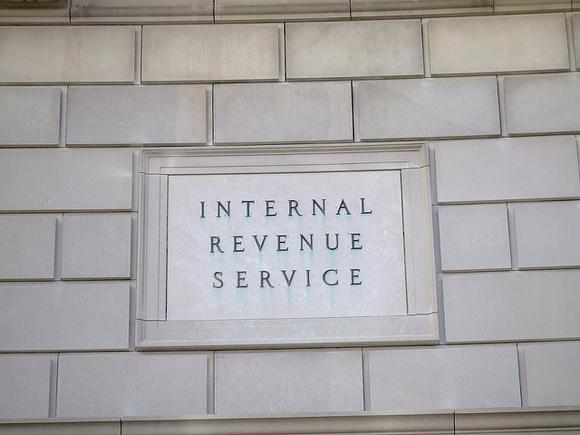Here’s the reality of IRS tax audits, so you’ll know the chances of an audit and what to do if it happens to you.
By Matthew Frankel
Audit is one of the most dreaded words in the English language for many Americans. Many people live in fear of the IRS deciding to audit their tax return, and try to do everything in their power to avoid one. While it’s definitely a good idea to take measures to prevent an audit, it doesn’t need to be the lingering fear many people think it is. Here’s why.
An audit is unlikely for most people
First of all, let’s put in perspective just how likely (or not) an audit is. During 2014, the most recent year for which data is available, 0.86% of all tax returns were audited — less than one in a hundred. And, although some tax returns are randomly selected for an audit, many are targeted for specific reasons.
For example, if the IRS’s records don’t match up to the amount of income you claim, it can trigger an audit. And, there are certain tax deductions that make an audit more likely, such as the home office deduction or business use of a vehicle.
And, certain income brackets get audited more. For example, more than 16% of returns with over $10 million in income get audited, and the audit rates for other “high income” taxpayers are also above the average. This makes sense — after all, the IRS has more to gain if they find additional tax liability on these returns, so they allocate more of their manpower to looking at them.
Also, tax returns with no reported adjusted gross income are also scrutinized more — specifically those who have no income as a result of a business loss. 5.3% of no-income returns were audited in 2014.
However, the audit rates in the middle-income brackets are extremely low. Just 0.56% of all tax returns with AGI between $25,000 and $199,999 were audited in 2014. The takeaway here is that less than 1% of tax returns are audited including those that are audited for a specific reason. Unless your return stands out to the IRS, an audit is highly unlikely.
Most audits are fairly easy
There are three types of IRS audits: mail, office, and field. If you’re audited, chances are it will be a mail audit, which simply means that the IRS mails you a letter requesting some documentation, and you simply send them what they request.
As a personal example, several years ago I received an audit letter from the IRS that questioned the amount of capital gains I claimed from my investments. It wasn’t that I did anything wrong, either — they simply hadn’t received the necessary form from my brokerage, and this set off a red flag. So, I simply printed out the requested information, mailed it in, and received a letter saying the file was resolved.
The bottom line is that a mail audit is no more than an inconvenience, and if you’ve done a good job of saving your tax documentation, it shouldn’t cost you more than a few minutes of your time and a postage stamp. According to Dave DuVal, VP of Customer Advocacy at TaxAudit.com, “If you’re able to substantiate your deductions, you should come out OK.” DuVal also said that if your tax situation is complicated (lots of business deductions, for example), you may want to hire a professional to help you through the process.
Of course, if you receive a letter and it turns out that you (accidentally or not) underpaid your taxes for the year, you may have to make up the difference. “The IRS code isn’t always black and white,” says DuVal. In other words, you may have honestly thought a deduction was allowed, only to find out that the IRS disagrees.
Even if you get a more thorough audit, honest taxpayers shouldn’t worry
The other two types of tax audits — office and field — are a little more complicated, but still don’t need to be a cause for concern.
The IRS may require an office visit when you have a questionable tax situation that would be difficult or impractical to handle by mail. For example, if you own a small business, and the auditor needed access to your books, invoices, and receipts, this can be a lot of paperwork to send through the mail. Plus, the process could go much smoother if you’re there to help the IRS identify specific items they need.
A field audit may be used for a tax-related item the IRS needs to see in person. For example, I’ve written before that the home office deduction is likely to raise red flags at the IRS. So, if you claim a home office deduction for a 1,000-square-foot room, it’s entirely possible that this is legitimate, but the IRS may want to verify in person that such a space actually exists and is being used exclusively for work. This is especially true if the deductions in question could potentially mean thousands of dollars in additional tax revenue.
Still, as long as your deductions are legitimate, you shouldn’t have much to worry about. And, even if the IRS determines you owe additional tax, you’ll have adequate time to pay it or set up a payment plan.
The Foolish bottom line on audits
It’s pretty unlikely that you’ll be targeted for an audit, but if you are, there’s no need to worry. As long as your tax return was honest and accurate, and you cooperate fully with the IRS’ requests, the process shouldn’t be too painful. And, don’t hesitate to get professional assistance if you need it. It may seem like a burdensome expense, but it could make the process a lot smoother, particularly if your tax situation is complex or if you have some “borderline” deductions.
2 new scorching stock picks have arrived
The same guys that hit giant home runs with Amazon and Netflix just stepped back up to the plate. On Friday, David and Tom Gardner, the co-founders of The Motley Fool, released two new picks. When these guys speak, it pays to listen — they have tripled the market’s returns over the last 13 years.
Click here now to be among the first people to hear about David and Tom’s newest stock recommendations.
The author(s) may have a position in any stocks mentioned. The Motley Fool owns shares of and recommends Amazon and Netflix.
Try any of our Foolish newsletter services free for 30 days. We Fools may not all hold the same opinions, but we all believe that considering a diverse range of insights makes us better investors. The Motley Fool has a disclosure policy.
















